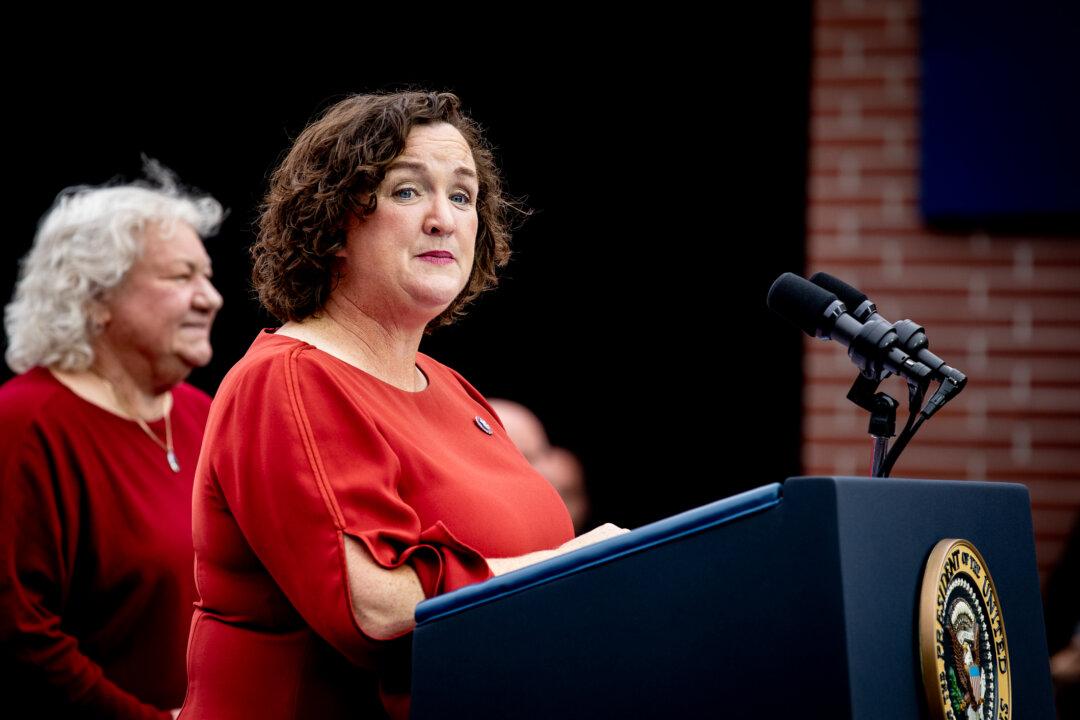A nonprofit government ethics watchdog claims that Rep. Katie Porter (D-Calif.), who is running to succeed Sen. Diane Feinstein in the 2024 election, illegally used official congressional resources in her reelection campaign.
“In 2022, Rep. Porter’s congressional office used taxpayer funds to run ads that are overtly political. These ads contained identical messaging or images to ads that her campaign ran and were often times completely indistinguishable from her campaign ads,” Kendra Arnold, executive director of the Foundation for Accountability and Civic Trust (FACT), told the Office of Congressional Ethics in a complaint filed on Feb. 22.





